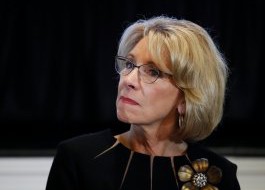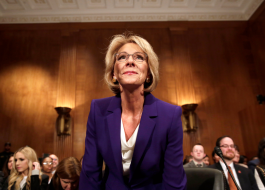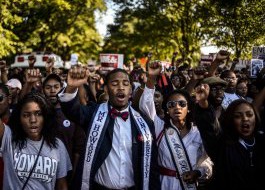
WASHINGTON (AP) — A commencement address by the No. 2 Senate Republican was canceled Friday after opposition from students at the historically black university where he was scheduled to speak.
The cancellation of Sen. John Cornyn's planned Saturday address at Texas Southern University came just days after Education Secretary Betsy DeVos was booed and heckled as she delivered a commencement speech at a different historically black university, Bethune-Cookman University in Florida.
Students at Texas Southern University in Houston had circulated a petition demanding the Texas senator be withdrawn as a commencement speaker, citing various stances he has taken. These included his confirmation votes in favor of DeVos and Attorney General Jeff Sessions, his opposition to funding for so-called sanctuary cities that protect immigrants and his support for photo IDs for voting. The petition also cited Cornyn's low rating by the NAACP.
"Having a politician such as him speak at our institution is an insult to the students, to TSU, and to all (historically black colleges and universities)," said the petition on the change.org site. "This is our graduation. We have the right to decide if we want to refuse to sit and listen to the words of a politician who chooses to use his political power in ways that continually harm marginalized and oppressed people."
The university released a statement saying that, "Every consideration is made to ensure that our students' graduation day is a celebratory occasion and one they will remember positively for years to come. We asked Sen. Cornyn to instead visit with our students again at a future date in order to keep the focus on graduates and their families. We, along with Sen. Cornyn, agree that the primary focus of commencement should be a celebration of academic achievement."
Cornyn's spokesman said, "Sen. Cornyn was honored to be invited to address TSU's graduates, but he respects the administration's decision and looks forward to continuing to engage with the university in the future."
The development comes amid a nationwide debate over free speech on college campuses, in the wake of two high-profile incidents at Berkeley where planned speeches by conservatives ended up getting canceled amid fears of violent student protests.




